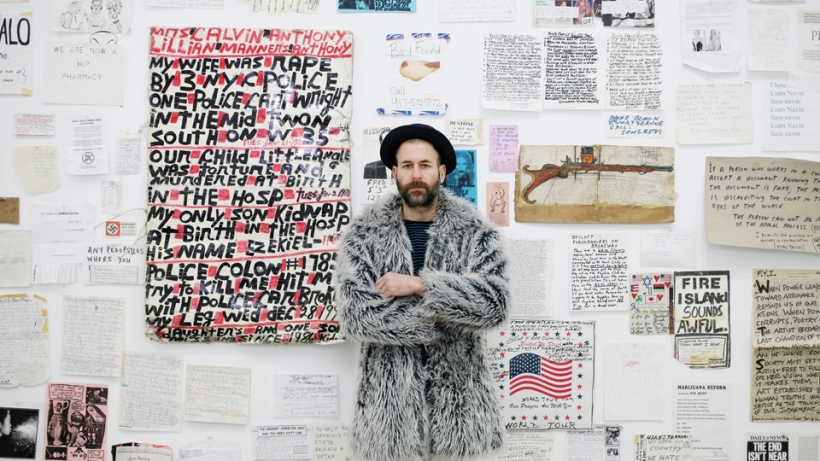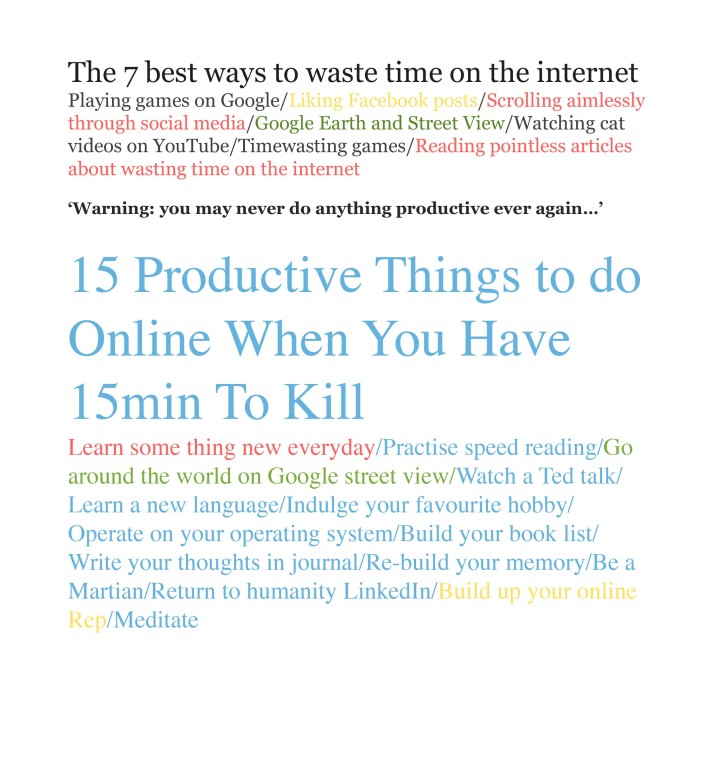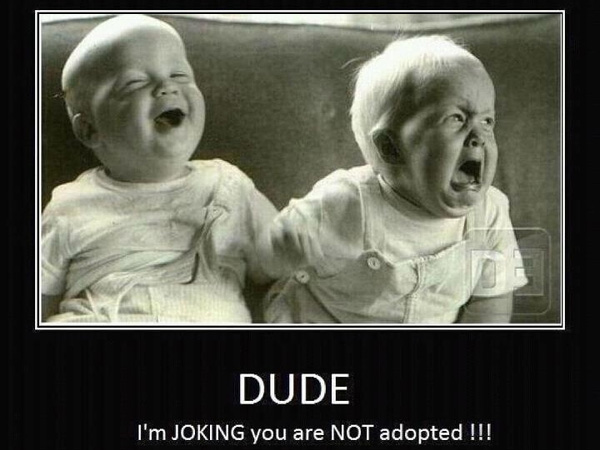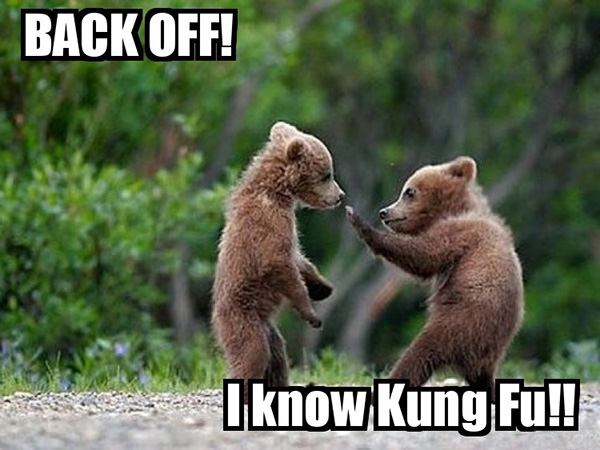This lecture started by introducing Kenneth Goldsmith, who is an American poet and conceptual artist. We learned that he had a class called ‘Wasting time on the internet’ in University of Pennsylvania. Here’s the explanation of this class on this university’s website(http://www.english.upenn.edu/Courses/Undergraduate/2015/Spring/ENGL111.301).
Live without dead time. — Situationist graffiti, Paris, May 1968 We spend our lives in front of screens, mostly wasting time: checking social media, watching cat videos, chatting, and shopping. What if these activities — clicking, SMSing, status-updating, and random surfing — were used as raw material for creating compelling and emotional works of literature? Could we reconstruct our autobiography using only Facebook? Could we write a great novella by plundering our Twitter feed? Could we reframe the internet as the greatest poem ever written? Using our laptops and a wifi connection as our only materials, this class will focus on the alchemical recuperation of aimless surfing into substantial works of literature. Students will be required to stare at the screen for three hours, only interacting through chat rooms, bots, social media and listservs. To bolster our practice, we’ll explore the long history of the recuperation of boredom and time-wasting through critical texts about affect theory, ASMR, situationism and everyday life by thinkers such as Guy Debord, Mary Kelly Erving Goffman, Betty Friedan, Raymond Williams, John Cage, Georges Perec, Michel de Certeau, Henri Lefevbre, Trin Minh-ha, Stuart Hall, Sianne Ngai, Siegfried Kracauer and others. Distraction, multi-tasking, and aimless drifting is mandatory.
He also wrote an article about this class on The New Yoker
The idea of this class is to make students see something from different viewpoint, by using glasses called ‘CREATIVE’. Anything can be something interesting once it has a concept, even something which seems completely dull. In this lecture we had a chance to try out something similar with this ‘uncreative writing’ class. We went on the internet and looked up whatever we wanted to: Facebook, twitter, news, etc. From those information, we were supposed to produce a piece of writing by only using the context we found on the internet.
This is what I made. First I typed ‘waste / time / internet’ in google’s search bar, and I ended up in a website which shows the common way that people ‘waste’ their time on the internet. After that, I ended up in a website which is something completely opposite, which explain how you can you your time on the internet productively. However, there were some parts which matches both websites although ‘waste’ and ‘productive’ never goes together. I matched up the lines with colours which I thought is similar. I found this exercise quite fun, it was definitely not stressful. Our lecturer told us that if you really don’t know what to do, you can just give a new title to something and then that’s done. In this lecture, readymade art was explained as well. When I was listening to this lecture, it reminded me of the posts we see so often on Facebook. Picture or image with funny captions. I know these are not made for artistic purpose, but still it can be something similar to readymade art. Usually the picture is originally just a random photo, but by putting some extra information with the text, it turns in to completely different.
The word ‘ready made art’ reminds (of course Marcel Duchamp was the initial thing which comes up in my head but other than that,) me of Sarah Lucas’ exhibition at White Chapel Museum I went when I was in foundation course. I find these kind of genre of art quite interesting since you are left to think while you look at the artwork. Why did the artist used this material, product? What is the message? It’s not only about the aesthetics. I think the reason why many people don’t get modern art because they don’t know that the concept of those art is one of the crucial point to it.




